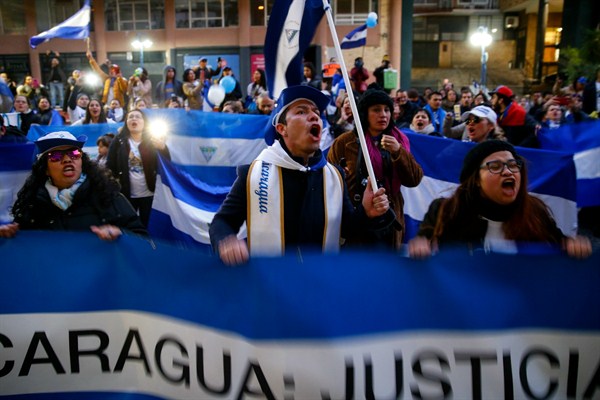On Monday, the Nicaraguan government announced it was implementing the very reforms that triggered widespread protests last year and led to a brutal government crackdown. A move of economic necessity, it also appeared to be another sign of President Daniel Ortega’s renewed confidence in power, despite international outcries over his government’s repression, which has resulted in 325 confirmed deaths and the arrests of more than 600 dissidents since last spring, among other abuses. Tens of thousands of Nicaraguans have fled into exile.
The unpopular fiscal reforms will address the country’s deficit-wracked pension system, increasing both employer and worker contributions and lowering the maximum amount of pensions. The reforms are similar to what was originally announced last April and then quickly retracted in the face of popular demonstrations. Economists and business groups worry that the reforms will further damage an already deteriorated economy. Nicaragua’s GDP declined 4 percent in 2018, a considerable blow to Latin America’s second-poorest economy. Ortega recently announced that Nicaragua was entering a “gallopinto” economy, a reference to the country’s national dish of rice and beans.
The reforms were announced amid renewed international efforts to resolve the stalemate in Nicaragua. International pressure on the Ortega administration has increased in recent weeks as attacks against the Nicaraguan press and civil society have intensified. Last week, a delegation from the European Parliament and several representatives from the U.S. State Department arrived in Managua in hopes of prompting an end to the crisis. The delegation, which met with government officials as well as members of civil society, urged the Ortega government to release political prisoners and return to dialogue. On Tuesday, the Socialist International expelled Ortega’s Sandinista National Liberation Front, or FSLN, for violations of human rights.

